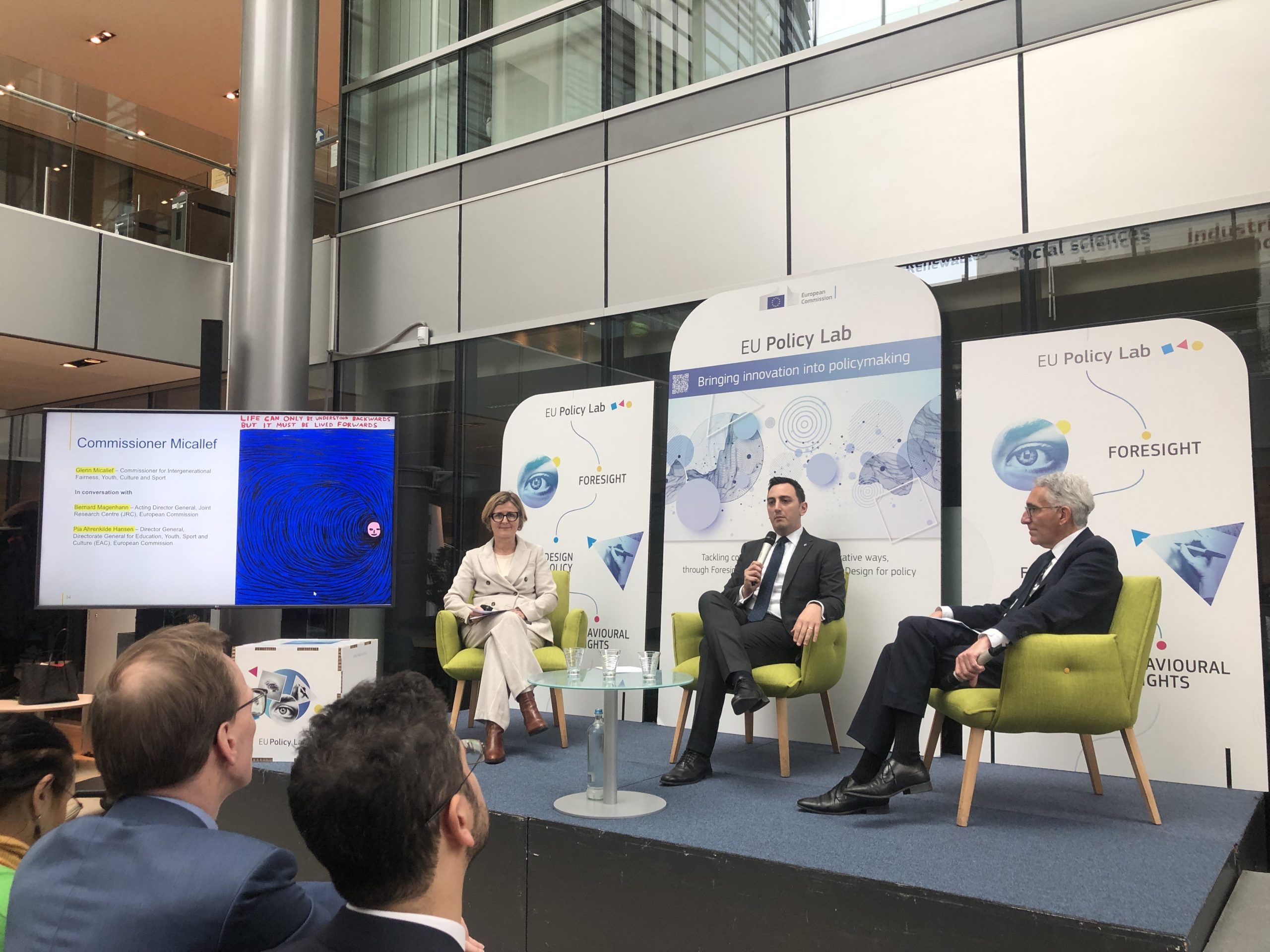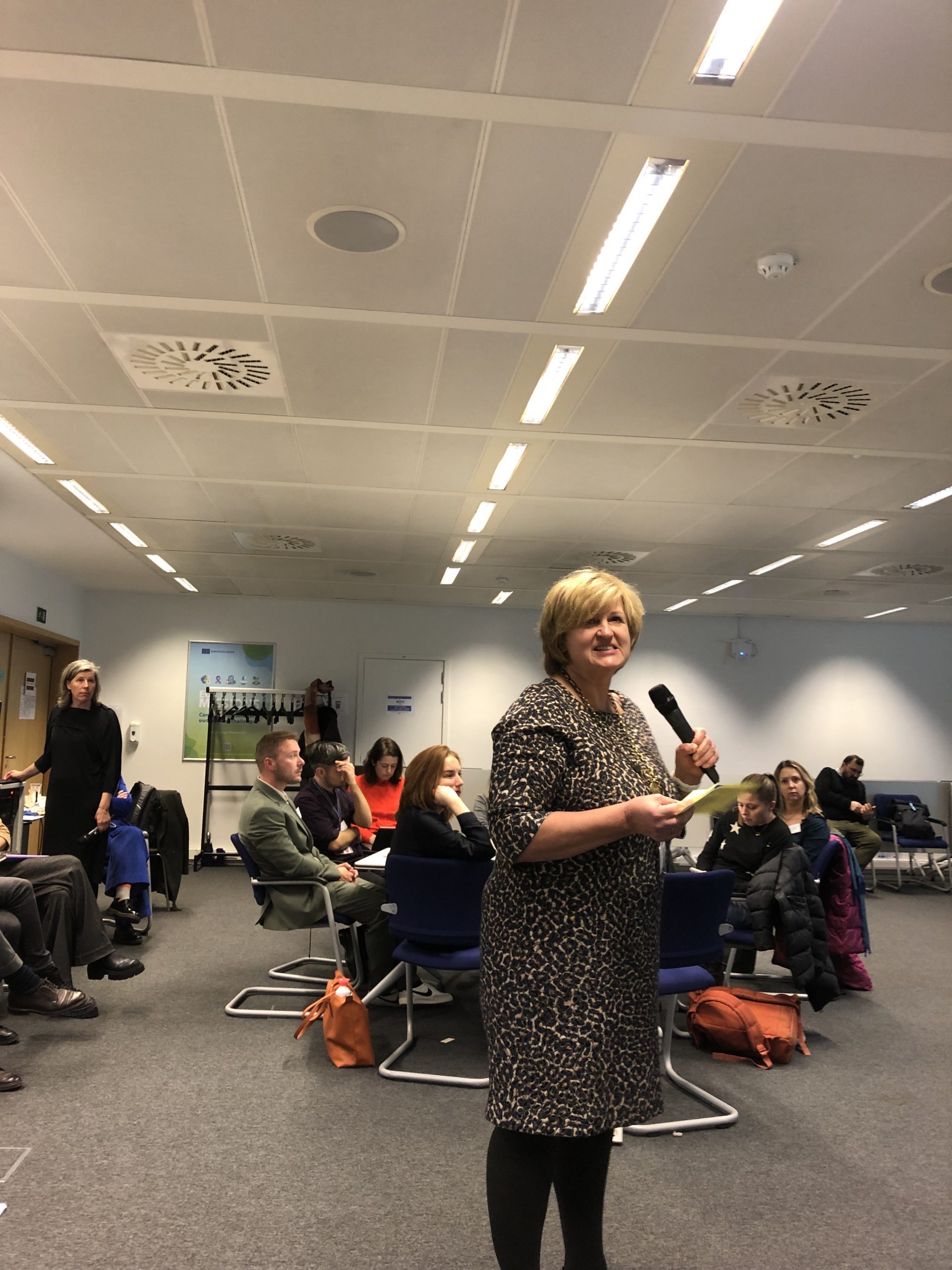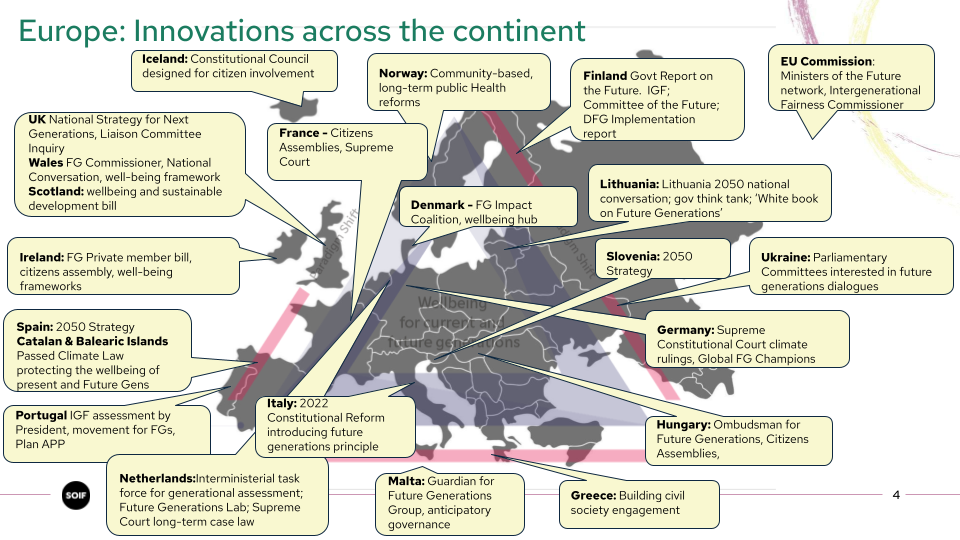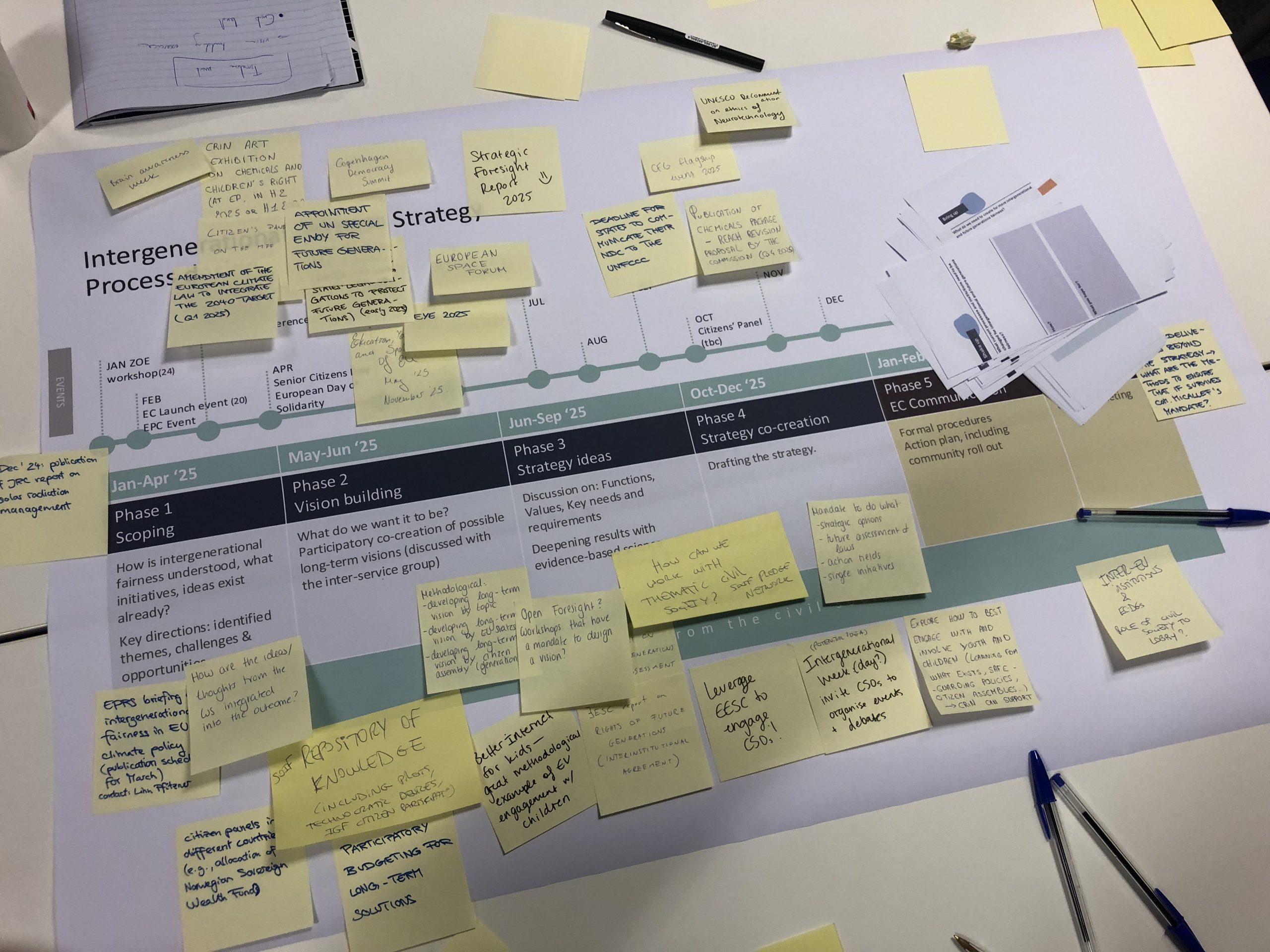On 20 February 2025, key stakeholders gathered in Brussels to launch the EU’s Intergenerational Fairness (IGF) strategy. The event highlighted the increasing acknowledgment that IGF is essential for fostering a resilient, competitive, and sustainable Europe that benefits all generations—both present and future—aligned with the principles of the Pact of the Future and its Declaration on Future Generations.

The event kicked off with the Commissioner Glenn Micallef interviewed by Bernard Magenhann, Acting Director-General of the Joint Research Centre (JRC) and Pia Ahrenkilde Hansen, Director-General for Education and Culture (EAC).
As Commissioner Glenn Micallef emphasised, civil society organisations and leaders must act as ambassadors to accelerate and implement IGF commitments across EU institutions and Member States. Jolita Butkevicience, Director for Innovation in Science & Policymaking at the JRC, further highlighted that IGF is a positive agenda—one that enjoys broad political support across the spectrum and connects deeply to the future of democracy. This echoes SOIF’s belief that IGF is not just about addressing demographic, economic or geopolitical shifts. It is also about rethinking the next stage of EU innovation on long-term governance in service of intergenerationally fair policies for the wellbeing of current and future generations.

Jolita Butkeviciene (JRC) summarises key points from the group discussions.
Over the past decade, SOIF has played a leading role in shaping IGF and long-term governance agendas across Europe. Our work was explicitly recognised in Brussels as pioneering, alongside key partners such as the ZOE Institute for Future-fit Economies. From our early contributions to the European Strategy and Policy Analysis System (ESPAS) and Intergenerational Fairness Framework, to our support of national long-term governance hubs in countries such as Ireland, Finland, Spain and Portugal, we have been at the heart of efforts to institutionalise IGF and futures through a whole-of-society approach.
Building on these efforts, SOIF has developed a Policy Brief with insights and recommendations to help the EU and its Member States to leverage this critical momentum. Our Policy Paper recollects decades of institutional efforts and provides concrete methodologies and policy pathways to ensure that ongoing reforms have long-term impact.
The paper also shows how transformation is already happening on the ground. Across Europe and within the EU, there is a wealth of evidence on the transformative power of this agenda. The map below showcases some of the most recent innovations:

SOIF’s Unique Contribution to Implementing the IGF Agenda
Drawing on 14 years of hands-on experience with national governments and international organisations, SOIF has developed a suite of tools and resources, based on IGF principles, to drive systemic change. These tools are grounded in the Transformative Foresight Governance Prism, an analytical framework that showcases the interplay of three critical dimensions—citizens, leaders, and institutions—that are proven to drive successful implementation of foresight and IGF practices. This requires:
- An ecosystemic approach: ensuring that citizens are meaningfully involved, leaders have incentives to make intergenerationally fair decisions and organisations and sectors have the capacity and capability to implement long-term transformations.
- Working across the Prism: mapping and identifying entry points, building coalitions of the willing and designing tailored interventions drawing on tested tools and methodologies.
- Strengthening capabilities and resources for implementation: ensuring institutional and sectoral capacity, as well as citizens and leaders peer learning through participatory dialogues and networks.
What’s next?

The IGF strategy is being co-created through a multi-stakeholder process involving EU institutions, international organisations, and key civil society actors. This includes the Jesuit European Social Centre (JESC), SOIF partners from the Network of Institutions and Leaders for Future Generations (NiFG), and the Center on Future Generations (CFG).
With broad political buy-in and a clear strategic direction emerging, now is the time to start shifting from discussion to action. SOIF stands ready to collaborate with policymakers, institutions, and civil society to ensure IGF is not just a guiding principle but a fundamental pillar of EU policymaking—embedded in practice, not just in theory.
Building a Movement
Through capacity building, action research and network weaving, SOIF supports and connects national and multilateral efforts towards the implementation of the DFG. Working for systemic change, we connect decision-makers, practitioners, and grassroots organisations to sustain momentum and ensure long-term impact. By engaging in the SOIF Pioneers Network, Pledge Network, and Next Generation Foresight Practitioners Network (NGFP), which bring together early adopters, activists and political champions leading change in more than 50 countries, EU changemakers can ensure that their efforts and learnings contribute to global transformation.
Stay tuned for more updates as we collectively continue to shape this agenda.
Interested in engaging in this journey towards Intergenerational Fairness? Read our Policy Brief Advancing Long-Term Governance and Intergenerational Fairness in the European Union and join the Pledge and Pioneers Networks by writing to claudette@soif.org.uk.
